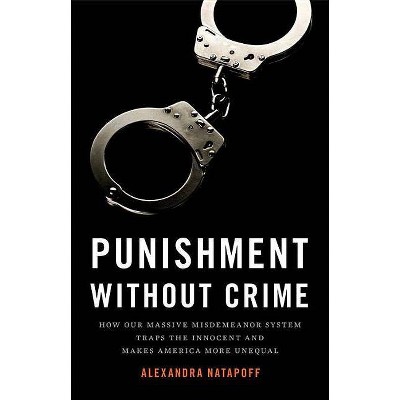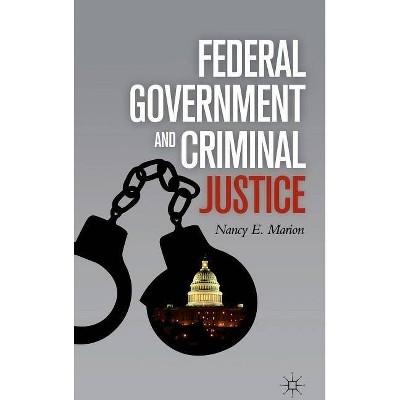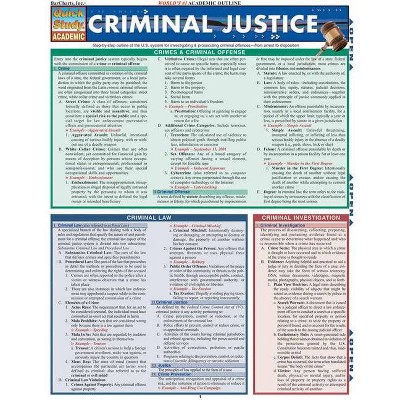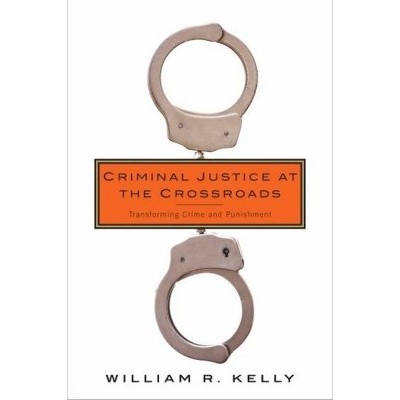The New Criminal Justice Thinking - by Sharon Dolovich & Alexandra Natapoff (Hardcover)
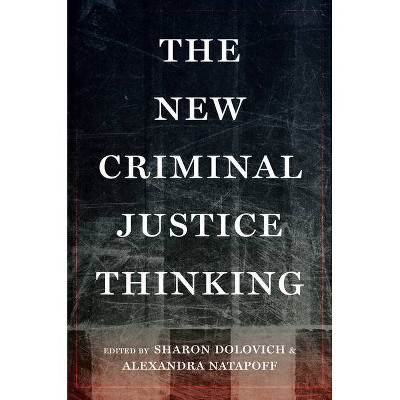
Similar Products
Products of same category from the store
AllProduct info
<p/><br></br><p><b> About the Book </b></p></br></br>"After five decades of punitive expansion, the entire U.S. criminal justice system (mass incarceration, the War on Drugs, police practices, the treatment of juveniles and the mentally ill, glaring racial disparity, the death penalty and more) faces challenging questions. What exactly is criminal justice? How much of it is a system of law and how much is a collection of situational social practices? What roles do the Constitution and the Supreme Court play? How do race and gender shape outcomes? How does change happen, and what changes or adaptations should be pursued? The New Criminal Justice Thinking addresses the challenges of this historic moment by asking essential theoretical and practical questions about how the criminal system operates. In this thorough and thoughtful volume, scholars from across the disciplines of legal theory, sociology, criminology, critical race theory, and organizational theory offer crucial insights into how the criminal system works in both theory and practice. By engaging both classic issues and new understandings, this volume offers a comprehensive framework for thinking about the modern justice system"--Publisher's website.<p/><br></br><p><b> Book Synopsis </b></p></br></br><p><b>A vital collection for reforming criminal justice</b><br><b></b><br>After five decades of punitive expansion, the entire U.S. criminal justice system- mass incarceration, the War on Drugs, police practices, the treatment of juveniles and the mentally ill, glaring racial disparity, the death penalty and more - faces challenging questions. What exactly is criminal justice? How much of it is a system of law and how much is a collection of situational social practices? What roles do the Constitution and the Supreme Court play? How do race and gender shape outcomes? How does change happen, and what changes or adaptations should be pursued? </p><p>The New Criminal Justice Thinking addresses the challenges of this historic moment by asking essential theoretical and practical questions about how the criminal system operates. In this thorough and thoughtful volume, scholars from across the disciplines of legal theory, sociology, criminology, Critical Race Theory, and organizational theory offer crucial insights into how the criminal system works in both theory and practice. By engaging both classic issues and new understandings, this volume offers a comprehensive framework for thinking about the modern justice system. </p><p>For those interested in criminal law and justice, The New Criminal Justice Thinking offers a profound discussion of the complexities of our deeply flawed criminal justice system, complexities that neither legal theory nor social science can answer alone.</p><p/><br></br><p><b> Review Quotes </b></p></br></br><br>[The book] offers several articles that will challenge the readers thinking and deepen the readers understanding of how the criminal justice works.-- "Criminal Law and Criminal Justice Book Review"<br><br>Atremendous collection of thoughtful essays written by preeminent scholars. . . . a cohesive examination of what is wrong with the American criminal justice system, and how we might go about fixing it.-- "New York Journal of Books"<br><br>In a collection of 14 essays that engage criminal law and justice, this volume contains new concepts and deeply interesting ideas by some of today's most erudite and recognizable scholars in 'criminal justice system' thinking.--The Howard Journal<br><br>In making sense out of the U.S. criminal justice morass and pointing toward transformation, Dolovich and Natapoff have accomplished the nearly impossible. Here is an accessible guide to some of the best work of leading criminal justice scholars. Creative, visionary and erudite, The New Criminal Justice Thinking is a crucial intervention in crucial times.--Paul Butler, Professor of Law at Georgetown Law<br><br>In The New Criminal Justice Thinking, Sharon Dolovich and Alexandra Natapoff take on the ambitious project of understanding what the contemporary American criminal justice system is and what it does at this critical juncture in time. The volume reflects a remarkable willingness to rethink the complex of actors, institutions, laws, and dynamics that operate to police and punish crime. Resoundingly successful at decentering crime from our thinking about the criminal justice system, this book effects an intervention that is crucial to understanding and reforming its injustices.--Bernard E. Harcourt, Isidor and Seville Sulzbacher Professor of Law at Columbia Law School<br><br>These essays mount an impressive and broad-ranging critique of the American criminal justice system, offering legal, sociological, psychological, and moral perspectives on the future of institutions that deeply mark our communities and collective life. An essential volume for anyone interested in changing our criminal justice system to produce a more equal and more just society.--Carol Steiker, Henry J. Friendly Professor of Law, Harvard Law School<br><br>This book can profitably be read by criminal justice practitioners, policy makers, and students at all levels. It is a necessary read.-- "Choice"<br>
Price History
Price Archive shows prices from various stores, lets you see history and find the cheapest. There is no actual sale on the website. For all support, inquiry and suggestion messages communication@pricearchive.us
